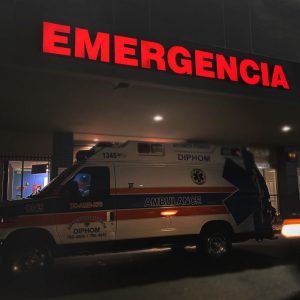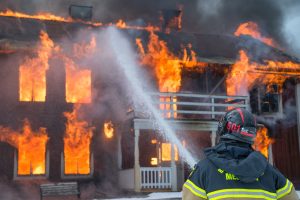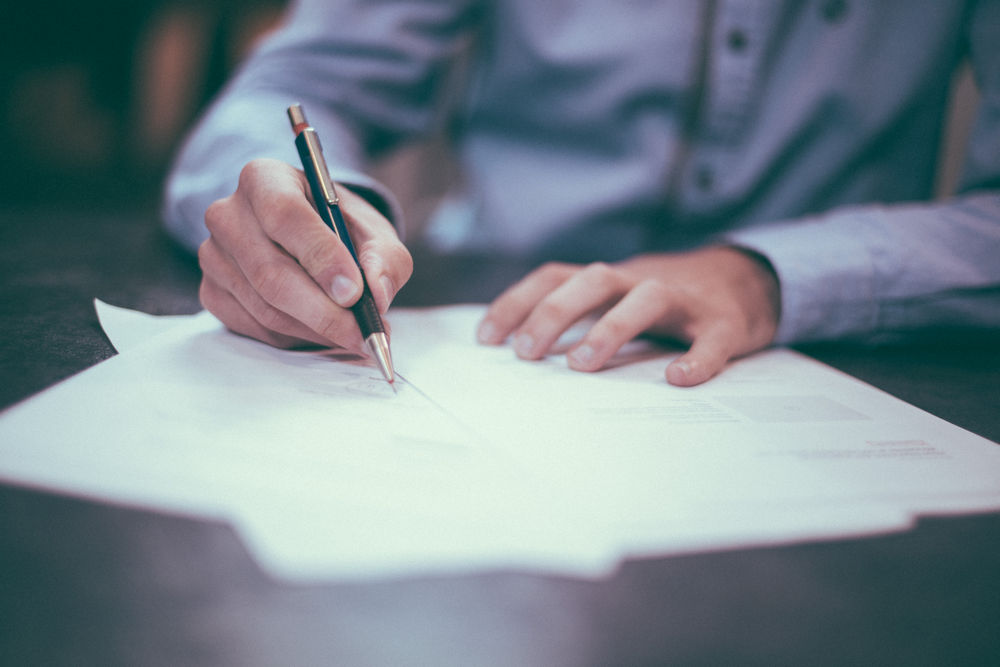Welcome to our blog! Today, we are going to talk about a topic that might not be the most exciting, but it is undoubtedly crucial: emergency preparedness. We all hope that emergencies never happen, but the reality is that they can strike at any time and catch us off guard. That’s why being prepared is so important.
In times of crisis, having the right insurance can make all the difference. It can provide you with financial security and peace of mind knowing that you have coverage for unexpected events. So, let’s dive into why having the right insurance matters when it comes to emergency situations and how you can choose the best coverage for your needs. Ready? Let’s get started!
Understanding the Importance of Emergency Preparedness
In today’s unpredictable world, being prepared for emergencies is more important than ever. Whether it’s a natural disaster, a medical emergency, or even an unexpected financial setback, having a plan in place can make all the difference in how you and your loved ones recover.
Emergency preparedness goes beyond simply stocking up on batteries and canned goods. It involves thinking ahead and considering all possible scenarios that could arise. By taking the time to create an emergency plan, you can help ensure that you have everything you need to weather any storm that comes your way.
One of the key elements of effective emergency preparedness is having the right insurance coverage. Insurance acts as a safety net during times of crisis by providing financial protection when you need it most. Imagine facing extensive property damage without insurance coverage or dealing with exorbitant medical bills without health insurance – it could be devastating both emotionally and financially.
When choosing insurance policies for emergencies, there are several types of coverage to consider. Homeowners’ or renters’ insurance can provide compensation for property damage caused by fires, storms, or other disasters. This coverage also typically includes liability protection if someone is injured on your property during an emergency situation.
Health insurance is another crucial type of coverage to have in place before an emergency strikes. Medical expenses can quickly add up after an accident or illness, so having comprehensive health insurance ensures that you won’t face exorbitant out-of-pocket costs.

In addition to these essential coverages, there are other specialized forms of insurance worth exploring depending on your circumstances. For example:
- Life Insurance: Provides financial support for family members in case of death.
- Disability Insurance: Offers income replacement if unable to work due to injury or illness.
- Business Interruption Insurance: Protects businesses from loss of income during unforeseen disruptions.
- Flood Insurance: Covers damages caused by floods which are not typically covered under standard homeowners’ policies.
- Travel Insurance: Provides coverage for medical emergencies, trip cancellations, and other unexpected events while traveling.
Having the right insurance is crucial for emergency preparedness. It not only provides financial protection in case of unforeseen events, but it also gives peace of mind knowing that you and your loved ones are covered in times of need. From life insurance to travel insurance, there are various types of specialized insurance that can make a significant difference during emergencies. In this blog article, we will explore the importance of having the right insurance and how it can help you be better prepared for any unexpected situations.
The Role of Insurance in Emergency Situations
When it comes to emergency situations, having the right insurance can make all the difference. Insurance acts as a safety net, providing financial protection and peace of mind during times of crisis.
In an emergency situation, such as a natural disaster or unexpected accident, insurance can help cover the costs associated with property damage or loss. Whether it’s your home being damaged by a hurricane or your car being totaled in an accident, having insurance coverage can alleviate some of the financial burden that often accompanies these events.
Not only does insurance provide financial assistance for repairs and replacements, but it can also offer coverage for medical expenses resulting from emergencies. This is especially important if you or a family member requires immediate medical attention due to an unforeseen event. With health insurance in place, you won’t have to worry about exorbitant hospital bills piling up.
Another crucial aspect of insurance in emergency situations is liability coverage. Accidents happen, and if someone is injured on your property or as a result of your actions during an emergency, liability insurance will protect you from potential lawsuits and legal expenses.
Additionally, certain types of insurance policies offer additional benefits specific to emergencies. For example, some homeowners’ policies provide coverage for temporary living arrangements if your home becomes uninhabitable due to damage caused by fire or other disasters.
Choosing the right insurance policy for emergencies depends on various factors such as location, lifestyle, and personal circumstances. It’s essential to assess your needs carefully and consult with an experienced agent who can guide you through different options.
Before purchasing any policy specifically tailored for emergencies ensure that it covers potential risks that are prevalent in your area such as floods or earthquakes if they are common occurrences where you live.
In conclusion (as per instruction), having the right type and amount of insurance is crucial when preparing for emergencies . From protecting our properties to covering medical expenses , there are numerous scenarios where having adequate coverage makes a significant impact on our lives during challenging times . Take the time to research and evaluate different insurance options to ensure you choose the best policy for your needs.

Types of Insurance Coverage to Consider for Emergencies
When it comes to emergency preparedness, having the right insurance coverage can make all the difference. Whether you’re dealing with a natural disaster, a medical emergency, or any other unforeseen event, having insurance in place can provide much-needed financial protection and peace of mind.
One type of insurance coverage to consider is homeowners or renters insurance. This type of policy typically covers damage to your property caused by events like fire, theft, vandalism, and certain natural disasters. It can also provide liability coverage if someone is injured on your property.
Another important form of insurance is health insurance. Medical emergencies can happen at any time and without warning. Having health insurance ensures that you have access to necessary medical care without worrying about exorbitant costs.
For those who own vehicles, auto insurance is essential. Accidents happen even in the best circumstances, so having comprehensive coverage that includes collision and personal injury protection can help cover repair costs and medical expenses.
In some cases, people may need specialized types of insurance depending on their unique circumstances. For example, if you live in an area prone to floods or earthquakes, obtaining flood or earthquake insurance may be wise.
Lastly but importantly there’s Life Insurance which provides a safety net for your loved ones in case something happens to you unexpectedly.
It’s crucial to carefully review different policies offered by insurers before making a decision as not all policies are created equal Considering factors such as deductibles, coverage limits, and premium costs, can help you choose the right policy for your needs.
Additionally, it’s important to regularly review and update your insurance coverage as needed. Major life events such as buying a new home or having a child may require adjustments to your insurance policies. It’s also essential to keep track of any changes in your assets or financial situation that may affect your coverage needs.
In case of an emergency, having the right insurance coverage can provide the support and protection you need. Take the time to carefully consider which types of insurance are best for you and your family.
Emergencies can happen unexpectedly and can have a significant financial impact on individuals and families. That is why having the right insurance coverage in place is crucial for emergency preparedness. In this section, we will discuss the types of insurance coverage that you should consider having to protect yourself and your loved ones during emergencies.
1. Health Insurance:
Health insurance is essential for any emergency preparedness plan. It covers medical expenses such as hospitalization, doctor visits, prescription drugs, and diagnostic tests. In case of an accident or sudden illness, health insurance can help alleviate the burden of expensive medical bills.
2. Life Insurance:
Life insurance provides financial support to your family in case of your untimely death. During an emergency, it can help cover funeral expenses, outstanding debts, and provide financial stability to your loved ones. Having life insurance ensures that your family is taken care of financially when you are no longer around.
3. Homeowners/Renters Insurance:
Your home is one of your most valuable assets, and it’s essential to protect it against emergencies like natural disasters or burglary. Homeowners or renters insurance provides coverage for damages to your property due to fire, theft, vandalism or weather events like hurricanes or tornadoes. This type of insurance also includes liability coverage in case someone gets injured on your property during an emergency.
4. Disability Insurance:
Disability insurance protects you financially if you become unable to work due to an illness or injury during an emergency situation. It provides a portion of your income to help cover expenses and maintain your standard of living.
5. Auto Insurance:
Having car insurance is not just a legal requirement in most states, but it also protects you financially in case of an accident or theft. Comprehensive auto insurance covers damages to your vehicle due to natural disasters, vandalism, or theft, while liability coverage helps pay for any damages or injuries you cause to others.
6. Flood/Earthquake Insurance:
If you live in an area prone to floods or earthquakes, it’s vital to have specific insurance coverage for these events. Standard homeowners or renters insurance typically does not cover damages caused by floods or earthquakes, so it’s essential to have a separate policy for these disasters.
It’s crucial to carefully review different policies offered by insurers before making a decision as not all policies are created equal Considering factors such as deductibles, coverage limits, and premium costs can help you choose the right policy for your needs.
In addition to having the right types of insurance coverage, it’s important to regularly review and update your policies as needed. Major life events such as buying a new home or having a child may require adjustments to your insurance coverage. It’s also important to keep track of any changes in your assets or financial situation that may affect your coverage needs.
In conclusion, having the right insurance coverage is crucial for emergency preparedness. Health insurance, life insurance, homeowners/renters insurance, disability insurance, auto insurance, and flood/earthquake insurance are all important types of coverage to consider. Take the time to carefully review and update your policies as needed to ensure you have adequate protection in case of an emergency.
coverage limits ,and premium costs will help determine which policy suits your specific needs best . Consulting with an experienced agent who specializes in emergency situations could also be beneficial in navigating through the process of finding the right insurance coverage for you.
Remember: being properly insured gives you confidence knowing that no matter what unexpected situation arises, you’ll be financially protected.
Plan ahead today!
How to Choose the Right Insurance for Your Needs
Choosing the right insurance for your needs is crucial when it comes to emergency preparedness. With so many options available, it can be overwhelming to determine which coverage will provide the best protection for you and your family.
First and foremost, assess your specific risks and vulnerabilities. Consider factors such as geographical location, climate conditions, and potential hazards in your area. This will help you narrow down the types of insurance that are most relevant to your situation.
Next, research different insurance providers and compare their policies. Look into their reputation for customer service, claims handling process, and financial stability. Reading reviews from other policyholders can give you valuable insights into how they have experienced working with a particular insurer.
It’s also essential to carefully review the terms and conditions of each policy before making a decision. Pay close attention to coverage limits, deductibles, exclusions, and any additional riders or endorsements that may be necessary based on your circumstances.
Consider seeking guidance from an insurance professional who can provide personalized advice based on your unique needs. They can help explain complex terminology or answer any questions you may have about specific policies.
Don’t forget to regularly review and update your insurance coverage as needed. As circumstances change over time or new risks emerge, it’s important to ensure that your policy continues to adequately protect you against potential emergencies.
By taking these steps when choosing the right insurance for emergencies ensures that you are adequately prepared should disaster strike unexpectedly.
Steps to Take Before and After an Emergency Occurs
Before an emergency strikes, it’s crucial to take proactive steps to protect yourself and your property. First, make sure you have the right insurance coverage in place. Evaluate your current policies and determine if they adequately address potential emergencies. Consider adding additional coverage or upgrading existing policies if necessary.
Next, create an emergency preparedness plan for you and your family. This should include a detailed evacuation plan, contact information for emergency services, and a designated meeting place in case you become separated. Make sure everyone in your household is familiar with this plan and knows what to do during different types of emergencies.
Additionally, it’s important to gather essential supplies before an emergency occurs. Stock up on non-perishable food items, bottled water, batteries, flashlights, first aid kits, and any other necessities specific to your location or situation.
After an emergency has passed or subsided, there are certain actions you should take as well. Assess any damage that may have occurred and document it thoroughly with photographs or videos for insurance purposes. Contact your insurance provider as soon as possible to initiate the claims process.
If necessary repairs need to be made immediately for safety reasons (such as boarding up broken windows), keep all receipts for materials and labor expenses related to these temporary fixes – they may be reimbursable by your insurer.
Remember that each type of emergency requires unique preparations and responses; therefore it’s important stay informed about potential risks in your area so you can adapt accordingly.
By following these steps before and after an emergency occurs ,you can better protect yourself financially while ensuring the safety of those around you.
Resources Available for Emergency Preparedness
When it comes to emergency preparedness, having access to the right resources can make all the difference. Thankfully, there are numerous tools and organizations available that can help you stay informed, plan ahead, and respond effectively during an emergency situation.
One valuable resource is your local government or municipality. They often have dedicated emergency management departments that provide helpful information on disaster preparedness specific to your area. These resources may include evacuation routes, shelter locations, and contact numbers for assistance.
Additionally, national organizations such as the Federal Emergency Management Agency (FEMA) offer a wealth of resources online. Their website provides guides on creating emergency plans for various situations like natural disasters or pandemics. They also have checklists and templates that can aid in preparing essential documents like insurance policies and medical records.
Another key resource is community-based organizations such as the American Red Cross. They offer training courses on first aid, CPR, and disaster response skills. The Red Cross also provides guidance on how to create a family communication plan so everyone knows what to do in case of an emergency.
Online platforms like Ready.gov are great sources of information too. This official website of the U.S Department of Homeland Security offers tips on developing an emergency supply kit with essentials like food, water, medications, flashlights, and batteries.
Social media platforms should not be overlooked either. Many government agencies and non-profit organizations use social media channels to share real-time updates during emergencies or disasters happening in your area.
So following their accounts might keep you better informed about any developing situations in your locality.
Lastly, your neighbors can be a crucial resource during emergencies.
Reaching out to them before a crisis occurs helps foster a sense of community resilience.
You can work together by sharing responsibilities, such as checking-in with each other regularly, discussing evacuation plans or pooling supplies if needed.
This support network could prove invaluable when facing unexpected circumstances.
By utilizing these resources available for emergency preparedness, you can enhance your ability to protect yourself, your loved ones, and
Conclusion
Being prepared for emergencies is crucial for the safety and well-being of yourself, your family, and your property. While it’s impossible to prevent all disasters from occurring, having the right insurance coverage can provide you with peace of mind and financial protection during challenging times.
Throughout this article, we have emphasized the importance of emergency preparedness and highlighted the role insurance plays in mitigating the impact of unexpected events. By understanding your risks, evaluating different types of insurance coverage available, and selecting policies that align with your needs, you can be better equipped to face emergencies head-on.
Remember to take proactive steps before an emergency occurs by creating a comprehensive inventory of your belongings, documenting important documents digitally or in a safe place outside your home, and regularly reviewing and updating your insurance policies as needed.
In addition to having appropriate insurance coverage in place, it’s also essential to familiarize yourself with resources available for emergency preparedness. Government agencies like FEMA (Federal Emergency Management Agency) offer valuable information on disaster planning and recovery assistance. Local community organizations may also provide guidance on how to create an effective emergency plan tailored to your specific region.
By prioritizing emergency preparedness and making informed decisions regarding insurance coverage, you are taking significant steps towards safeguarding what matters most in times of crisis. Remember: it’s not a matter of if an emergency will occur but when – so be ready!
Stay safe!
